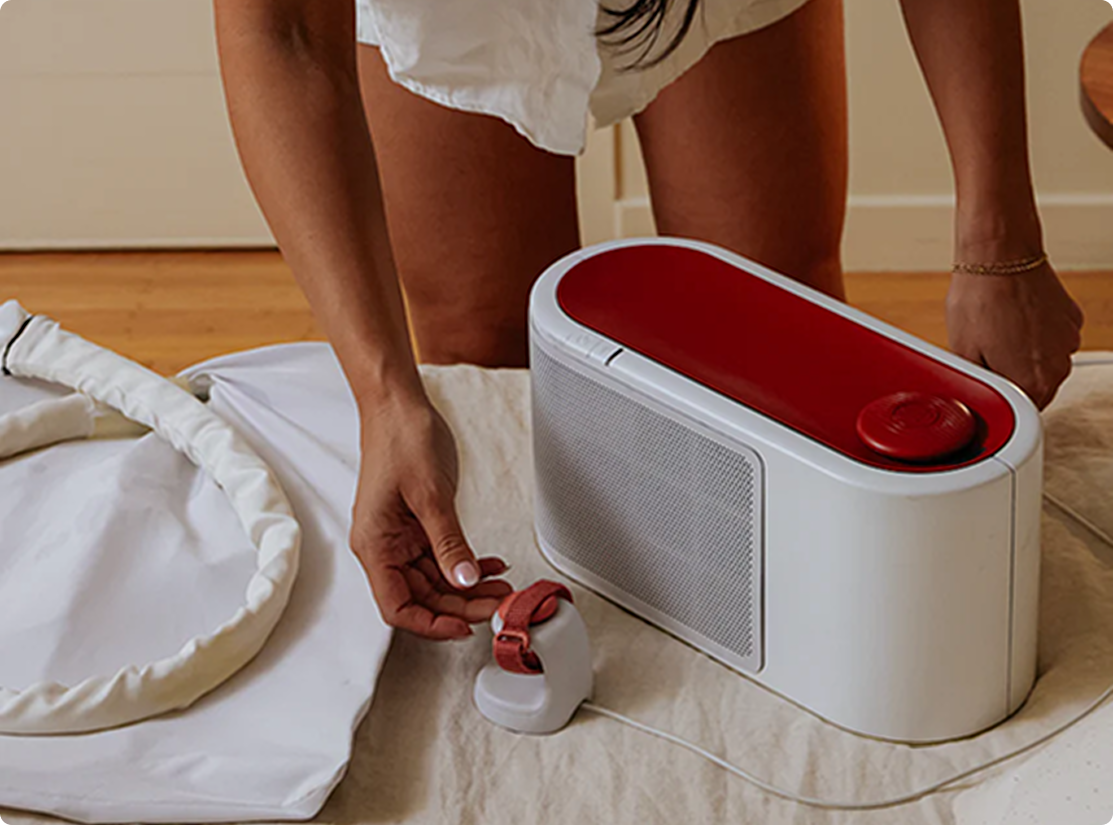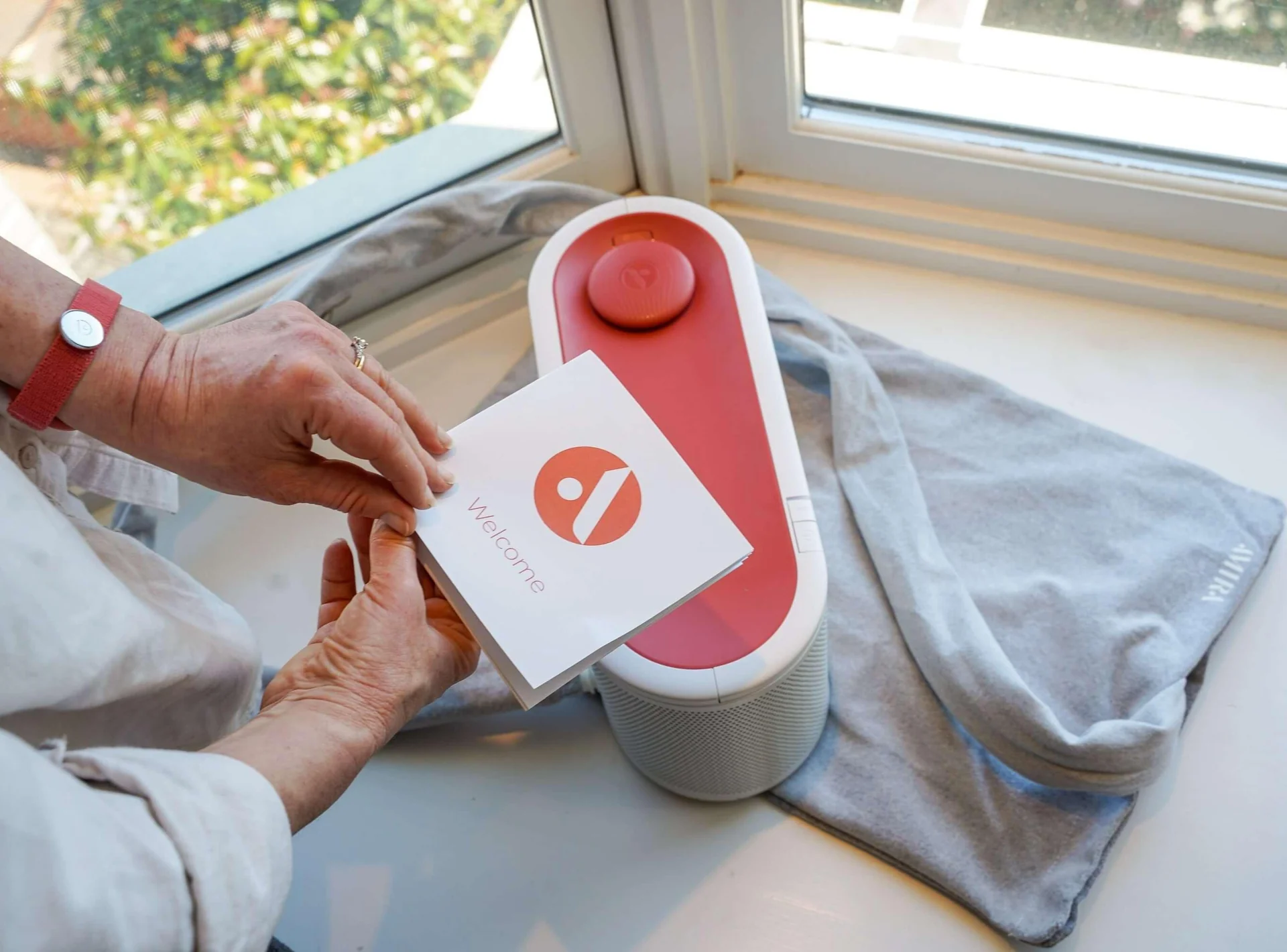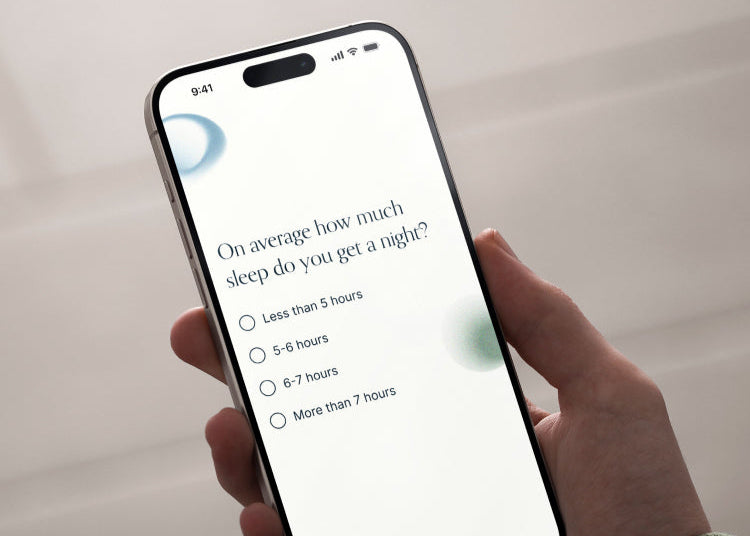Sleep complaints are reported by 40–60% of menopausal women. Poor sleep is a risk factor for cardiovascular disease, diabetes, and obesity. While the effect of menopausal hormone therapy on sleep quality is unclear, Hormone Replacement Therapy (HRT) remains one of the most prescribed treatments for menopausal symptom management.
HRT is a treatment that provides supplemental hormones, such as estrogen and sometimes progesterone, to counter the drop in hormone levels during menopause. Women often consider hormone replacement therapy (HRT) to manage the more disruptive symptoms of menopause, such as hot flashes, night sweats, and a decrease in sleep quality. These symptoms can significantly affect daily life, from poor sleep to discomfort during physical activity or intimacy.
The connection between HRT, sleep quality, menopause, and temperature regulation needs more scientific study, but most research suggests hot flashes occur when decreased estrogen levels inhibit vasodilation, or the expansion of blood cells to bring more blood and body heat to the surface of the skin.
Meanwhile, decreased progesterone or progestins (synthetic hormones designed to mimic the effects of progesterone) have the opposite effect. The influence of these hormones crosses over multiple physiological systems, including cardiovascular and neurological, in addition to strictly thermoregulatory.
Studies examining temperature regulation across the menstrual cycle have demonstrated an increase in stable body temperature when progesterone levels are high, but lower when estradiol, a precursor to estrogen, is elevated and unopposed by progesterone.
Most doctors approach this issue with HRT, and while it's a common option for easing menopausal symptoms, it’s not a one-size-fits-all solution.
Understanding Hormone Replacement Therapy (HRT) and Sleep
Hormone Replacement Therapy follows two paths. Estrogen-only therapy, and Estrogen-Progestin or Combination Therapy. The female reproductive system relies on both hormones to regulate each other.
Estrogen-only therapy is typically prescribed for women who have had a hysterectomy without an oophorectomy, or the surgical removal of the ovaries.
This is because Estrogen and Progestins like Progesterone counteract each other to regulate the body during pregnancy or menstruation and prevent adverse cell mutations. Without a uterus, the effects of unopposed estrogen on the body, like endometrial hyperplasia, endometrial polyps, endometriosis and adenomyosis, cannot develop.
Without the need for progesterone, estrogen-only therapy helps relieve hot flashes, vaginal dryness, and other symptoms caused by low estrogen levels.
For women who still have their uterus, ovaries, or both, combination therapy is preferred. Progesterone is included to counteract the risk of endometrial damage, which can occur when estrogen is taken alone. Most progestins, or synthetic progestogens, have been found to increase the risk of breast cancer in postmenopausal people in combination with estrogen as a component of HRT.
Myths About HRT
Myth 1: HRT is necessary for all women during menopause
One common misconception is that hormone replacement therapy (HRT) is a must for every woman going through menopause. In reality, every woman’s experience with menopause is different, and not all will need or benefit from HRT.
Some women may have mild symptoms that can be managed with lifestyle changes or non-hormonal treatments, while others may experience more severe symptoms that make HRT a viable option.
Moreover, HRT is not without risks, and it isn’t suitable for everyone. Women with a family history of certain cancers (such as breast or ovarian cancer), blood clots, stroke, or cardiovascular disease may face increased risks with HRT.
Myth 2: HRT is a quick and easy solution
Many people believe that hormone replacement therapy (HRT) is a straightforward fix for menopausal symptoms, but it often takes time to find the right balance. Determining the correct dosage and hormone combination is complicated, as each woman’s body responds differently to treatment. It may require several adjustments over months or even years before achieving the desired results.
During this adjustment period, women can experience severe discomfort as their bodies adapt to exogenous hormones. Side effects like poor sleep, bloating, mood swings, migraines, or breast pain are common while fine-tuning the dosage. This process can feel frustrating, especially if symptoms fluctuate or worsen before improvement is seen. Additionally, regular check-ins with a healthcare provider are needed to monitor the effects and make necessary changes.
The journey to finding the right HRT plan can be a lengthy, expensive, and uncomfortable one, making it far from a quick fix for most women.
Myth 3: HRT is the only effective treatment for menopausal symptoms
There is a prevalent belief that HRT is the sole effective option for managing menopausal symptoms, but this is not the case. Numerous alternative treatments and lifestyle changes can help alleviate discomfort during this transitional phase.
Lifestyle changes play a crucial role in managing menopausal symptoms. Better sleep hygiene can improve the body's circadian rhythm and subsequently, sleep. Regular physical activity can help reduce hot flashes, improve mood, and promote better sleep. Maintaining a balanced diet rich in fruits, vegetables, whole grains, and healthy fats supports overall well-being and can alleviate some symptoms.
The Sleep Connection
Quality sleep is critical for health and well-being, yet it often becomes elusive for women during menopause due to hot flashes, night sweats, and hormonal fluctuations. Terra’s innovative approach to menopausal relief aims to directly address these challenges, fostering better rest. By integrating cooling technology with biosensing systems, Terra not only helps mitigate temperature-related disruptions but also promotes a more stable sleep environment. Improved sleep through Terra’s solutions supports cognitive function, emotional balance, and overall health, enabling women to feel more refreshed and empowered during their day. Sleep isn’t just rest—it’s a cornerstone of vitality, and Terra is designed to help women reclaim it.
Resources
https://pubmed.ncbi.nlm.nih.gov/24715568/







